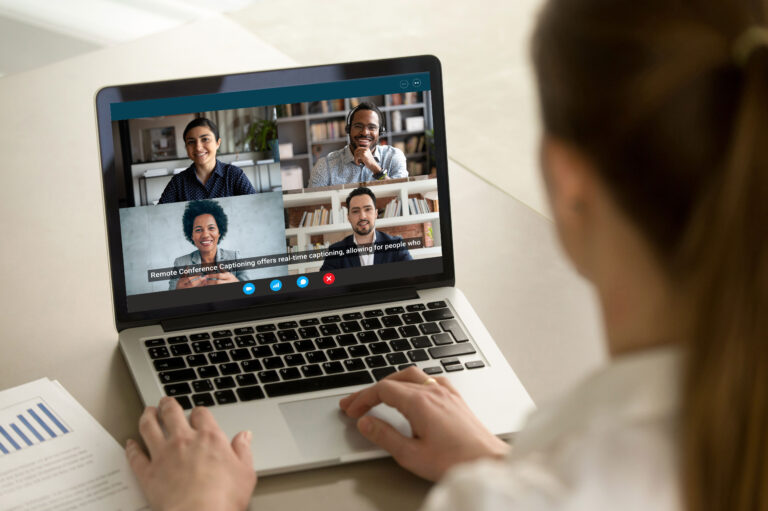
Individuals who have difficulty hearing can use RCC to communicate effectively during conference calls, virtual meetings, or webinars.
The free service, offered exclusively from Maryland Relay to approved individuals, provides real-time streaming text of what all participants are saying during conference calls, virtual meetings, or webinars—allowing the RCC user to read the text on an Internet-connected device.
No special software is required to use RCC; however, users must have access to an audio conference line or other high-quality audio connection (telephone, webcast, VoIP) so the captioner—who types everything that is said during the conference call, virtual meeting, or webinar—can listen. As they listen, the captioner uses Communication Access Realtime Translation (CART) service to produce real-time streaming text, which appears on the user’s Internet-connected device—such as a computer, tablet, or smartphone.

Getting Started with RCC:
RCC captioning is provided by a skilled captioner who listens to the audio portion of a conference call, virtual meeting, or webinar. Using Communication Access Realtime Translation (CART) service, the captioner is able to provide the real-time streaming text which users can access and read. While ASR can computer-generate captions based on people’s voices, RCC is a more reliable option for people who have difficulty hearing.
Benefits | Relay Conference Captioning | Automatic Speech Recognition |
Accessibility | Accurate, reliable captioning for hard of hearing users to follow conversations where multiple people are speaking. | Captions are often incomplete or inaccurate and can cause confusion or misunderstandings for users. |
Quality | Consistent, high-quality level of captioning with a 98% accuracy rate. | Captions are not always consistent and the percentage of accuracy ranges from the low to mid-90s. |
Customization | Users can customize the captions to meet their specific needs—including the font size and color of the text. | While some ASR captions allow customization, others can be limited. |
Speaker Identification & Tone | Human captioners can not only identify all speakers on conference calls, virtual meetings, or webinars, but they can also identify their tone, inflection, and context to situations, making it easier for users to follow the conversation. | While ASR can identify different speakers during conference calls, virtual meetings, or webinars, it can become more difficult to follow the conversation when multiple voices are coming from the same line. Tone and inflection are not identified in the same way a human captioner hears and relays them. |
Administered by Telecommunications Access of Maryland, Maryland Relay is a free public service that enables people who are unable to use a standard telephone to make and receive calls—including those who are Deaf, hard of hearing, late-deafened, DeafBlind, or have difficulty speaking.
Learn more about Maryland Relay and its programs and services at MDRelay.org